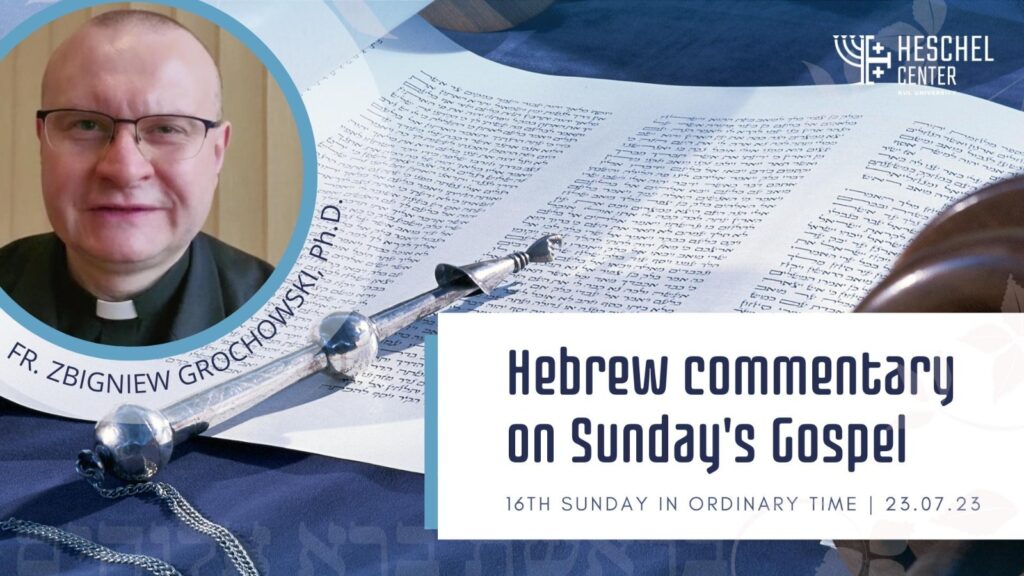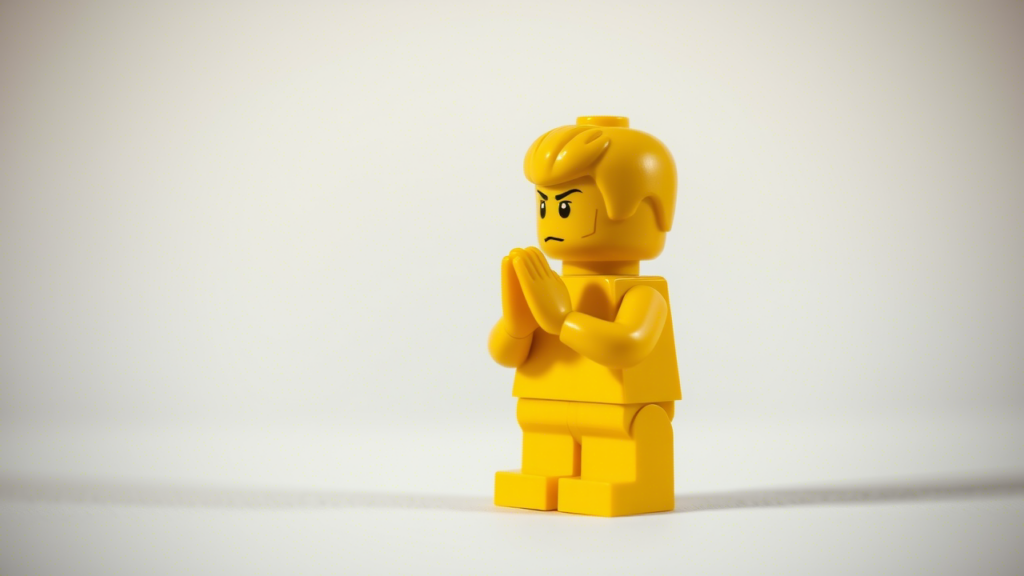Parables of the mustard seed and the yeast
A slightly different interpretation

The parable of the good seed and the weeds emphasizes the existence of not just moral goodness in the world but also evil. In both the Old and New Testaments, Leaven also has a negative meaning. The “the yeast of malice and wickedness” (1 Corinthians 5:6-8) must be removed. Therefore, today’s parables call for radical work on oneself and patience and mercy toward another person’s weakness, writes Rev. Zbigniew Grochowski, Ph.D., in his commentary for A. J. Heschel Center of the Catholic University of Lublin, for Sunday, July 23.
Jesus continues in today’s Gospel teaching in parables. The parables about the wheat and the weeds relate to the one about the sower, which resounded in last Sunday’s liturgy. The good seed grows well, but a weed accompanies it. Interestingly, the weed should not be removed immediately, but both must be allowed to grow, waiting for the day of harvest. Only then will the good be definitively separated from the bad. “This will ensure that there will be no risk of the mistake of confusing one with the other,” the biblical scholar stresses.
According to the biblical scholar, the Hebrew word ḥāmēṣ and its Greek equivalent ζύμη refer to yeast. During Passover, it is customary to remove yeast from Jewish homes, and when offering sacrifices to the Lord God, it should be avoided. Paul of Tarsus, referring to the Feast of Unleavened Bread, emphasizes the need to keep a pure and sincere heart, which is the opposite of “the yeast of malice and wickedness” (1 Corinthians 5:6-8). The parable of yeast is a call for radical conversion, urging us to eliminate any evil in ourselves, no matter how small, as it has the potential to “leaven everything.”
According to Fr. Grochowski, Christians should follow Jesus and interact with others patiently and with great tolerance, lest they accidentally destroy the good germinating in another person under the pretext of removing the evil. And before proceeding to remove the splinter from his eye, he should first deal with the beam present in his own, bearing in mind the truth that even a minor sin in his own heart can, after time, grow into great evil. Therefore, judgment should be left to the Lord God, who will judge everything in truth and love on the Last Day.
evil in ourselves, no matter how small, as it has the potential to “leaven everything” (Mt 13:33; Lk 13:21; 1 Cor 5:6; Gal 5:9).
The truth that “the person who is dishonest in very small matters is also dishonest in great ones” (Lk 16:10b) inspires firm action, i.e., not tolerating even the slightest harmful attachments in oneself, let alone sin, even light.
The growth of good and the spread of evil
It is the spiritual-moral aspect of the Kingdom of God, as expressed in the mustard seed and yeast parables. By the power of the Holy Spirit and the apostolic zeal of the disciples of Jesus, the Gospel is spreading in the world, and more and more good is being done (which is illustrated by the mustard seed). However, evil holds a destructive power that can rapidly lead to a person’s moral decay if not addressed. It can then spread to a broader circle, resulting in greater moral corruption in the world (this, in turn, is illustrated by the leaven).
Between radicalism and forbearance
But how do we take this interpretation, juxtaposing it with the parable about the weeds, which should not be uprooted now but left until the day of harvest = the Last Judgment? Well, since Christ himself warns of the danger of removing (along with the weeds) also the good seed (i.e., the good in the broadest sense), and keeping in mind the Gospel call to convert (rather) oneself than others (cf. Mt. 3:2; 4:17; Mk. 1:5), the parables of today can be seen as a reminder to focus on self-improvement and avoid even the minor sin within one’s own heart. Additionally, it is essential to approach others with patience and mercy when attempting to guide them towards the right path. Forcing someone to accept the truth of the Gospel may have the opposite effect of discouraging them, leading to the potential loss of any good growing within them.
Following the example of his Master, Jesus, who “will not break a bruised reed, nor quench a dimly burning wick” (Is. 42:3) – for “he is gentle and of a humble heart” (Mt. 11:29) – the Christian also approaches another person with forbearance. And before he proceeds to remove the splinter from his eye, he first deals with the beam present in his eye (Mt 7:5; Lk 6:42). Judgment, on the other hand, should be left to the Lord God, who on the Last Day – guided by justice and mercy – will judge everything in truth and love. “Stop judging, and you will not be judged. Stop condemning…” (Mt 7:1; Lk 6:37). “Repent and believe in the Gospel” (Mark 1:15).
About the Author
Rev. Zbigniew Grochowski, Ph.D. – a specialist in biblical sciences and archaeology, a graduate of Rome’s Pontificium Institutum Biblicum and Jerusalem’s Studium Biblicum Franciscanum, assistant professor in the Department of New Testament Exegesis of the Department of Biblical Sciences of the Faculty of Theology of Cardinal Stefan Wyszynski University in Warsaw, focuses on the Writings of John and the topic of the disciples of Jesus, lecturer at the Higher Theological Seminary in Elblag, ordinary member of the Association of Polish Biblical Scholars and the Ex-Alunni PIB Association.
Heschel Center of the Catholic University of Lublin
Related

Overcoming Emotional Dependence: A Guide with Psychologist Mónica Caballero
Proyecto Ánima
28 March, 2025
2 min

Addictions and Sexuality
José Miguel Ponce
28 March, 2025
2 min

The Chosen: A Series That Wins Hearts in Its Own Language
Mar Dorrio
27 March, 2025
4 min

Being a Christian of One Piece: Integrity and Coherence in the Life of Faith
Patricia Jiménez Ramírez
26 March, 2025
2 min
 (EN)
(EN)
 (ES)
(ES)
 (IT)
(IT)

